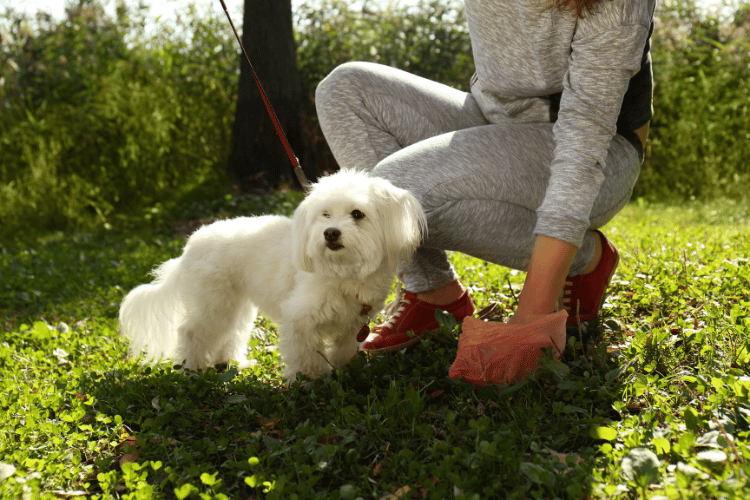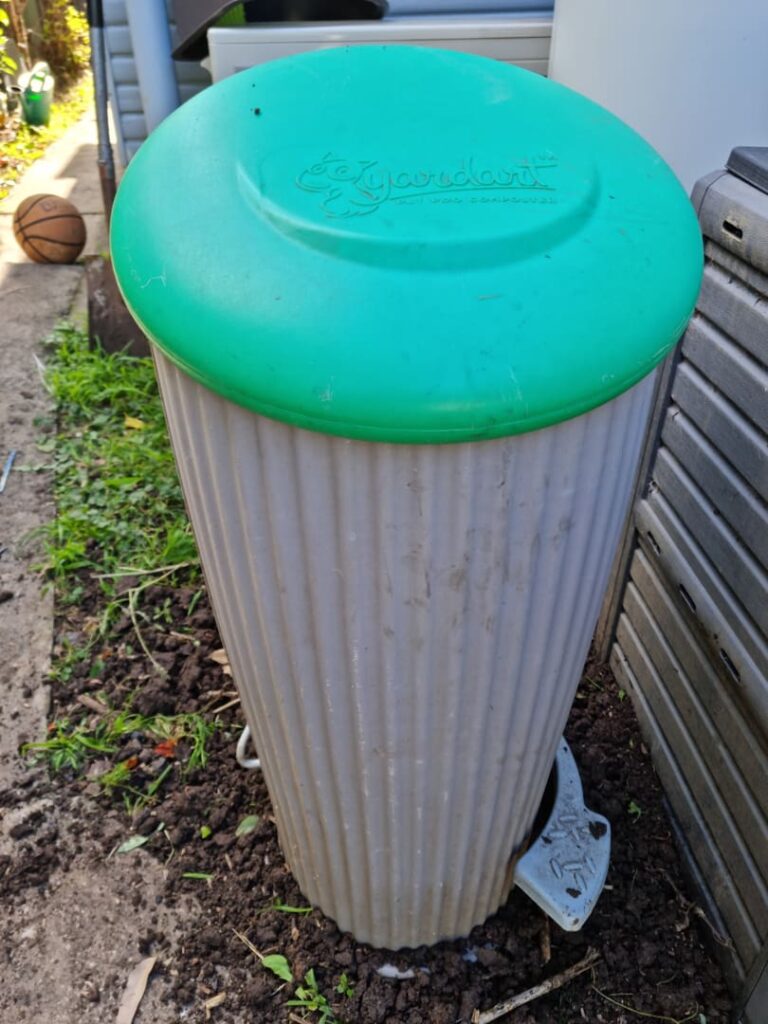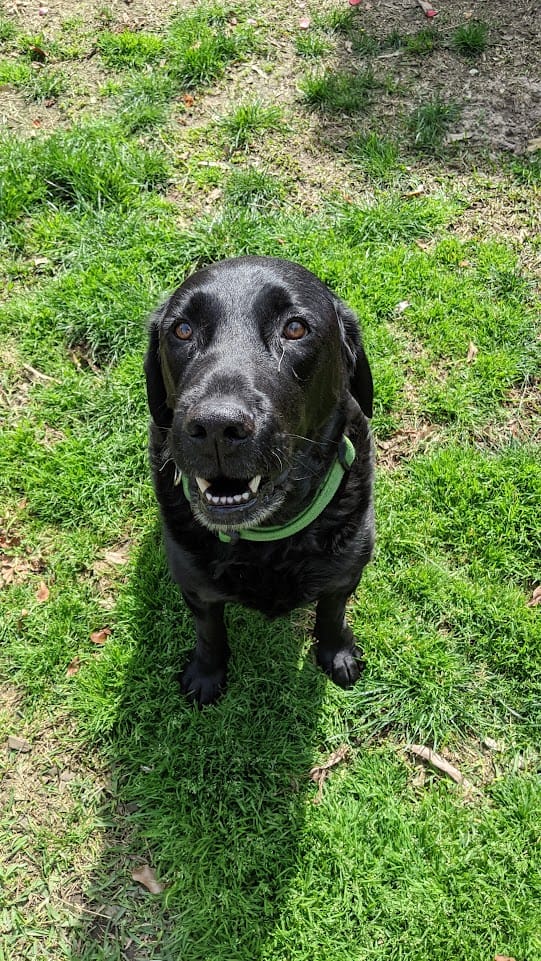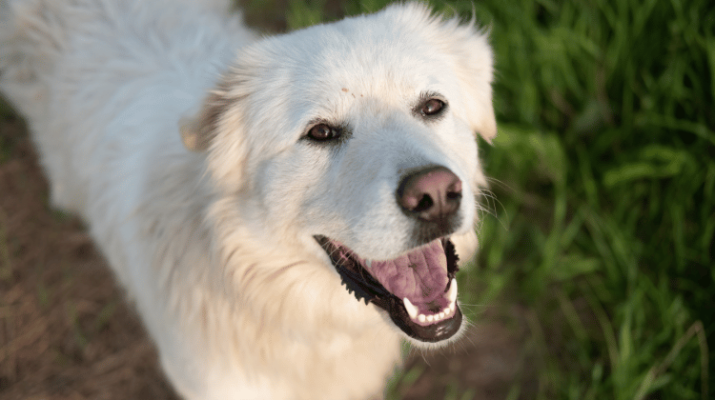Whether you have a large dog or a small one, you must’ve noticed they poo a lot! You’d be surprised to know that a medium-sized dog produces around 400 pounds of poo every year.
Since feces are a source of organic matter, you must be wondering, can you compost dog poo in worm farm?
The short answer is yes! You can compost your dog’s waste, but you’ll need a special composter for this process.
Do you want to find out more? In today’s article, we’ll tell you everything you need to know about composting your canine friend’s waste. Let’s dive into the details right away.
What You’ll Need to Compost Dog Poo
Generally, you shouldn’t add dog poo to your regular compost. That’s because pet waste is a biohazard that contains a lot of harmful pathogens.
The composting process doesn’t get rid of these pathogens. Therefore, you’ll need a designated dog poo composter.
Are Dog Poo Composters Different From Regular Ones?
Yes! With regular composters, the main goal is to make plenty of compost. We can then use the compost as a fertilizer.
On the other hand, the main goal of dog poo composters is to get rid of pet waste. In addition, composted pet waste can feed the soil below the surface.
You can also use compost as a fertilizer for some plants. However, you should avoid using it on fruits, vegetables, or edible plants.
What’s more, dog waste composters have a different design. Typically, you’ll need to dig a hole in the ground and place the composter into it.
Dog poo composters have holes in them that allow the nutrients from the compost to seep into the soil. Alternatively, in normal composters, you have to harvest the compost yourself and spread it on your lawn or garden.
In both cases, worms play a crucial role in speeding up the decomposition process.

How to Compost Dog Poo in a Worm Farm
To compost dog poo in a worm farm, you’ll have to get a designated composter or make your own. Then, place the composter in an underground hole, leaving only the lid visible.
We recommend lining the bottom of the hole with a handful of dried leaves or coconut coir as bedding for the worms.
Then, add your worms to the farm. It’s best to add a small amount of kitchen scraps to the worms from time to time to keep them happy and healthy. However, don’t give them a lot of scraps, as they won’t eat the poo.
Next, you can start adding pet waste to the farm. If you have a farm kit, make sure to read the instructions carefully. You’ll also find the recommended number of worms you can add to the farm.
You can keep adding canine waste until the hole is filled. After that, you can top it off with soil and find a new spot to start another farm.
How to Make a DIY Dog Poo Worm Farm Composter
If you don’t want to spend a lot of money on a dog poo composter, you can easily make one at home. There are many ways to make a waste composter. We found that the easiest way to do so is by using a plastic garbage can.
You can also start with a plastic bucket. In any case, you’ll need to drill some holes in the sides of the can to allow nutrients to seep out of the container. You’ll also need to cut the bottom off.
Then, measure the dimensions of the container. After that, grab a shovel and dig a hole in the ground. It should be as deep as the height of your can and as wide as its diameter.
Finally, place the can in the hole and cover it, leaving only the lid visible at the surface.
Essential Tips and Rules for Composting Dog Poo
Before you start composting dog poo, there are some rules and essential tips you need to know about. Let’s check them out.
- Don’t Fertilize Fruits and Vegetables With Dog Poo
While the temperature might rise and kill some pathogens during the process, it might not be enough to kill all the bacteria.
Therefore, you shouldn’t fertilize fruits, vegetables, or any edible plants with dog waste. It’s always better to be safe than sorry.
- It’s Best to Use a Separate Worm Farm
Generally, you should use a separate worm farm to compost dog waste. That’s because dog poo might contaminate the compost.
More importantly, the worms inside your farm will pick any type of food over the dog poo. If they have to choose between lettuce and dog waste, they’ll surely go for the lettuce every time.
- Don’t Add Poo From Sick or Unknown Dogs
If your dog shows any signs of disease, you shouldn’t add its poo to the worm farm. In addition, don’t add feces from unknown or stray dogs to your farm. In both cases, the feces might be carrying harmful pathogens.
- Avoid Composting Your Dog’s Poo After Worming
Typically, vets recommend worming any adult dog once every three months to get rid of any worms or parasites. Just like how the tablets get rid of the parasites inside your dog, they can end up harming the worms inside your farm.
Therefore, don’t use your dog’s poo in the worm farm immediately after worming.
- Check on the Worms Regularly
It’s essential to keep an eye on your worms. Make sure the farm isn’t getting too moist or too dry.
If the compost is too moist, you can add some handfuls of shredded paper or cardboard. On the other hand, if it’s too dry, just spray a small amount of water on the compost.
- Avoid Using Compostable Bags
You shouldn’t put the canine waste in compostable bags. Most compostable plastic bags can take around 6 months to compost in a regular bin. So, it can slow down the process.
If you’re used to picking up the poo using compostable bags, we recommend simply ripping the bags open before throwing them into the farm.
Can Dog Poo Become a Fertilizer?

Dog waste is a source of pollution that can affect water quality and human health. Luckily, you can turn the waste into a nutrient for your garden.
After composting your canine poo, you’ll have a compost that’s highly beneficial to your garden. It can help your plants flourish, increase yield, and encourage growth. Not to mention how it improves soil health.
Why You Should Consider Composting Dog Poo in Your Worm Farm
There are many benefits to composting your canine feces inside a worm farm. For starters, you’ll end up with a nutrient you can use in your garden.
In addition, you’ll be saving the environment and getting rid of the poo in a safe way. Further, you don’t need to worry about the smell. Composting dog waste inside an in-ground farm has a minimal smell.
Not to mention how easy it is to hide in-ground worm farms. No one will notice them! More importantly, the process is easy, fast, and efficient. Moreover, that can help reduce the amount of waste going to landfill.
More importantly, you’ll be providing your soil with many nutrients that can give your plants a health kick!

How Long Does It Take for the Worms to Break Down the Poo?
The time the worms take to break down the poo depends on many factors. That includes the worms’ breed, their health condition, how well-established your farm is, and the time of the year.
On average, worms can compost 50 L of waste in around three months. Keep in mind that the lower the temperature is, the slower the process will be. Furthermore, worms need time to adapt to their new home and reproduce.
Uses of Dog Waste Compost
Canine waste compost is an excellent source of organic matter. You can add it to your garden or potted plant to improve the soil structure and add nutrients.
The compost can also contribute to good aeration and moisture-holding capacity of the soil. You can also use the compost as a mulch material.
Further, dog poo compost is a great soil additive for revegetation and planting beds. Many use compost as an ingredient in their potting mixes. If you want to do so, we recommend adding around 25% compost to the blend.

What to Do When Compost Smells Bad
If your worm farm starts smelling bad, there might be something wrong that you need to fix. First, check the moisture level in the bin.
Excess moisture can cause a bad smell inside your farm. You can fix that by adding dry materials to the composter and mixing them.
Second, it could be due to the lack of air inside the farm. In that case, turning the compost pile can fix the issue. If the problem recurs, consider a different bin design.
Wrapping Up
Composting dog poo in worm farm will provide you with a lot of benefits. For starters, you’ll be providing the soil with nutrients. In addition, you can use the fertilizer on non-edible plants in your garden.
Not to mention how you’ll be saving the environment and recycling the canine waste in a safe way.
You don’t need to worry about the smell at all. Dog poo composters produce little to no smell. Good luck composting!

